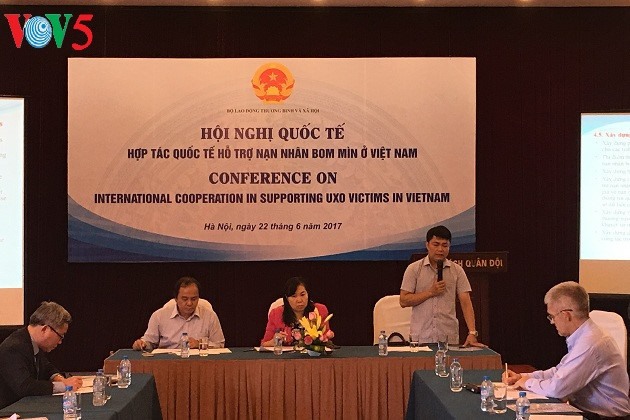 Politics & Law
Politics & Law

Providing simple jobs in animal husbandry and rattan product making must be prioritised in the scheme to help people injured by unexploded wartime ordnance.
 |
| Providing simple jobs in animal husbandry and rattan product making must be prioritised in the scheme to help people injured by unexploded wartime ordnance. — Photo vov.vn |
HÀ NỘI — Providing simple jobs in animal husbandry and rattan product making must be prioritised in the scheme to help people injured by unexploded wartime ordnance.
The comment was made by Đoàn Hữu Minh, head of the Social Work Division, Department of Social Assistance, during a conference on international support for handling unexploded ordnance (UXO) and its consequences, held in Hà Nội on Thursday by the Ministry of Labour, Invalids, and Social Affairs (MoLISA).
According to Lưu Hồng Sơn, MoLISA’s Deputy Chief of Staff, land mines and UXO contamination affected 81 per cent of all localities in the country, with a combined area of 67,800 sq.km, translating to 20.86 per cent of the country’s total area. Sơn said it would take hundreds of years and trillions of đồng to remedy the consequences of post-war landmines and bombs.
The conference was organised to discuss policies and social services for the victims, methods of data collect on victims, and increased media involvement to raise awareness of UXO consequences.
Experts recommended that Việt Nam continue co-ordination with interested international organisations to support victims with their medical needs, especially physical rehabilitation, as well as mental support.
Serif Bajric, a representative of Norwegian People’s Aid (NPA), said the organisation is co-ordinating with the Việt Nam National Mine Action Centre (VNMAC) to carry out an information management database project in the central province of Quảng Trị, the most heavily bombed during the Việt Nam War. The project aims to create an exhaustive database of all the victims of wartime ordnance so that concerned agencies can devise support programmes for them. — VNS




